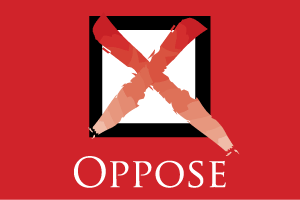 Legislation that will take away Californians’ ability to vote on their legislators’ actions will be considered this week by the Assembly Elections Committee.
Legislation that will take away Californians’ ability to vote on their legislators’ actions will be considered this week by the Assembly Elections Committee.
The bill, AB 421 (Bryan; D-Los Angeles), is strongly opposed by the California Chamber of Commerce and a coalition of business associations and local chambers of commerce.
As the coalition points out in a letter to the author, AB 421 dramatically changes the state’s direct democracy process to essentially eliminate the ability for anyone to qualify a referendum.
The referendum, together with the initiative and the recall, is one of the three direct democracy processes created by Governor Hiram Johnson and Progressive leaders more than 100 years ago to allow the people of California to hold elected representatives accountable for their actions.
Compared with the initiative, the referendum is used lightly. According to the Secretary of State, only 33 state referenda have qualified and gone before the voters in the last 100 years. In the same period, tens of thousands of pieces of legislation have been enacted.
“Despite suggestions otherwise, there is no evidence that the referenda process is controlled or manipulated by any interest. In fact, in the last 70 years of the 17 referenda that have qualified, 10 of them have had to do with redistricting or Indian gaming compacts,” the coalition said in its letter.
Problems with AB 421
- Constrains public’s role in the ballot process. By requiring that at least 10% of signature collection be done by volunteers, AB 421 would make signature gathering prohibitively expensive, thereby ensuring that only the wealthiest of special interests can participate in the electoral process. Similar proposals have been vetoed five times by the last three Governors; their veto messages cited concerns that the increased cost of signature gathering would create barriers to citizen participation in the process and favor wealthy special interests.
- Changes the vote question — a solution in search of a problem. Currently, a referendum that qualifies for the ballot asks voters to step in the shoes of the Legislature to consider the proposed law. Voters vote “yes” on the measure to approve the proposal, and “no” to reject it. AB 421 instead asks voters to second-guess the Legislature and vote about the Legislature’s action, not about the proposed law itself. This is a profound difference from the historic intent and function of the referendum. Any such change would be ill-advised and could likely be made only with a constitutional amendment.In any case, there is no evidence that the long-standing approach has confused voters, who have approved 16 (48%) of the 33 laws subject to the referendum over the last 100 years and rejected 17 (52%) of the referended statutes.
- Creates shorter time frame to collect signatures for some types of initiatives with no rationale. The proposal limits to 90 days the amount of time that proponents of some types of initiatives have to gather signatures, while other types of initiatives would remain at 180 days from when proponents file their intended paperwork with the Secretary of State. There is no substantive reason to distinguish between different subjects of initiatives and the change could have unintended consequences.
- Sets up arbitrary bureaucratic deadlines for updating paperwork. Under the proposal, the petitions that are used to collect signatures for referenda or certain initiatives would have to follow a strict template — stricter than for initiatives under the current law. The new requirements would lead to significant increases in printing costs as campaigns would have to constantly discard and replace out-of-date petition sheets. Signatures on the discarded petition sheets would be invalidated, adding to the practical impossibility for proponents to gather the required number of signatures in the shortened time frame allowed.
Oppose AB 421
The CalChamber and coalition are urging Assembly Elections members to oppose AB 421. By making it harder to qualify referenda and certain initiatives, this proposal is denying Californians the right to address grievances with their government. Californians cherish direct democracy and this would eliminate that opportunity.
Staff Contact: Ben Golombek

